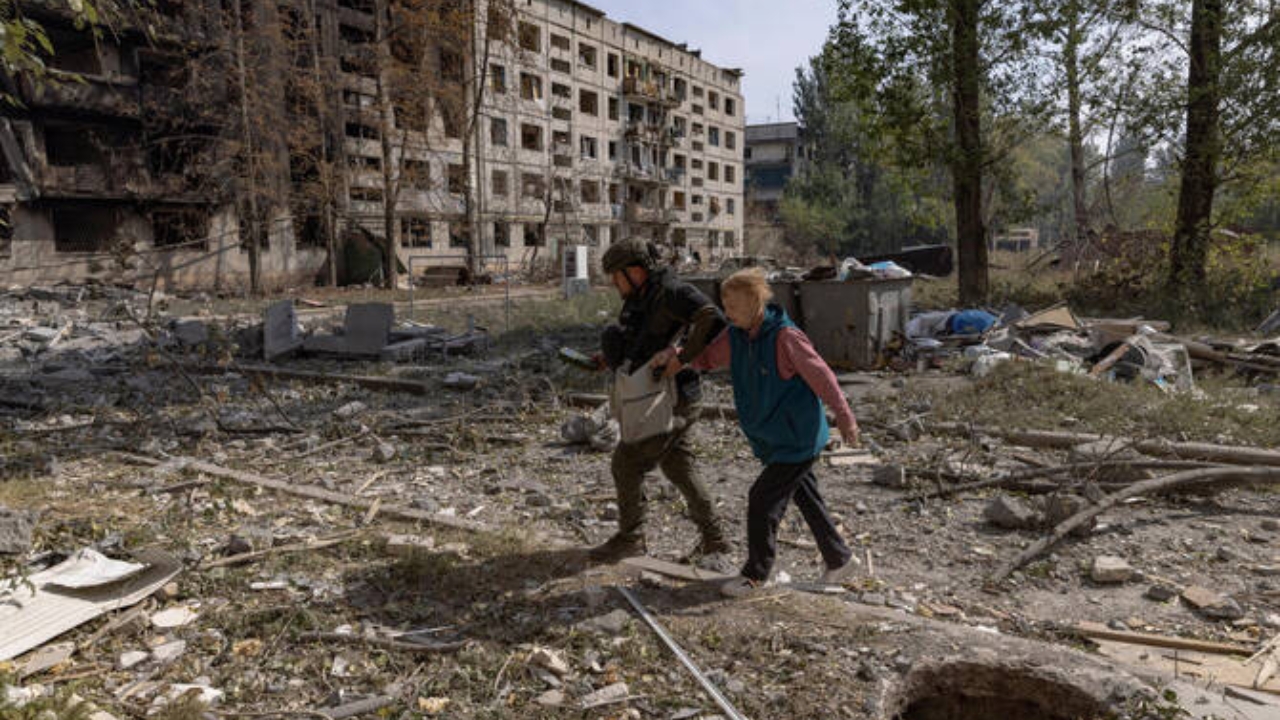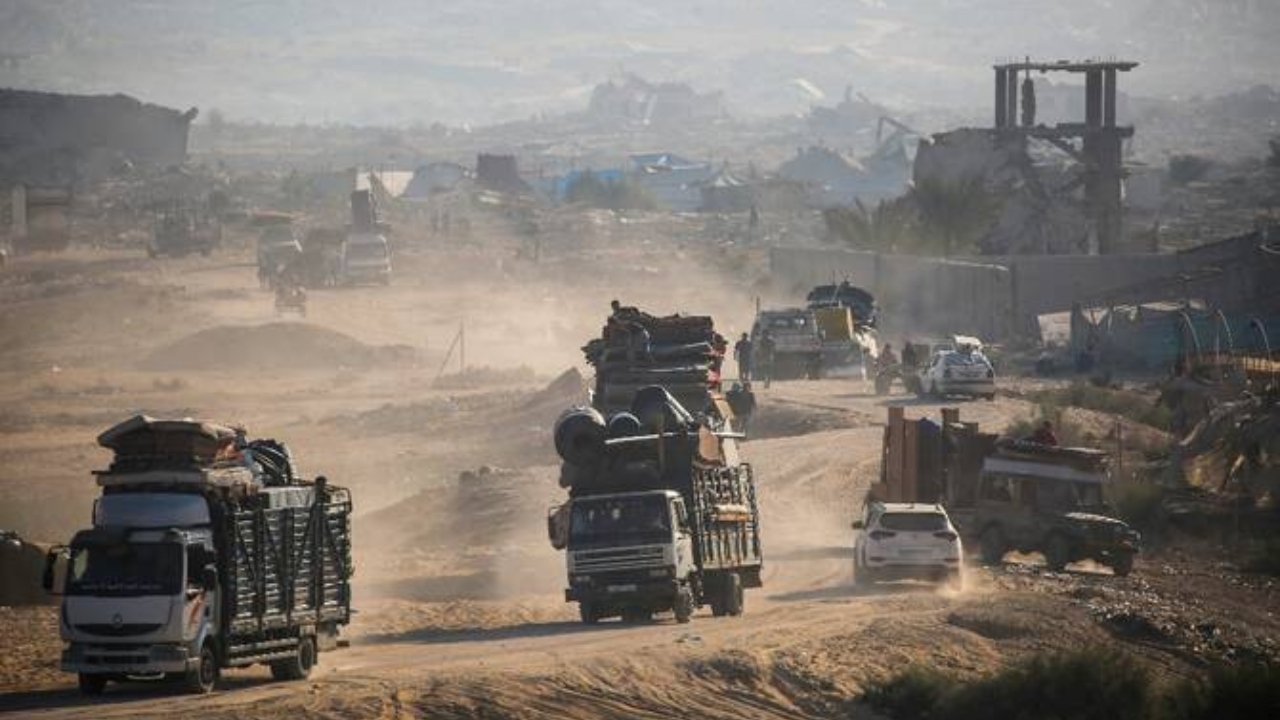
Russian Missile Strike Kills 5 Civilians in Ukrain
Russian strike kills five civilians in Ukraine's Kostiantynivka city.

Photo:AFP
The war in Gaza has taken another dangerous turn with reports of a complete telecommunications blackout, coinciding with the advance of Israeli tanks deeper into the enclave. In a region already gripped by extreme suffering, this total loss of communication has left ordinary civilians cut off from the outside world, rescue workers unable to coordinate life-saving missions, and humanitarian organizations struggling to carry out relief operations. The blackout is more than a technical disruption: it is a moment that deepens the sense of isolation, fear, and despair inside Gaza.
A City Cut Off from Life
Telecommunications are often underestimated in their role during wartime. For a war-battered population of more than two million, the ability to call family, seek emergency care, or even hear updates from the outside is critical to survival. When mobile signals, internet, and landlines went down across Gaza’s urban centers and refugee camps, the silence spread panic. Families who rely on phones to check if their children are alive, doctors who need to request urgent transfers, and aid workers coordinating relief convoys suddenly found themselves blind and stranded.
In modern conflict, to cut communications is not only to block messages but to choke lifelines. In Gaza, where hospitals are already overwhelmed and fuel supplies scarce, this blackout goes beyond inconvenience. It translates quickly into lost lives.
Israeli Tanks Push Deeper
The blackout comes as the Israeli Defense Forces (IDF) intensify their ground campaign. Tanks and armored carriers have reportedly pushed into northern and eastern parts of Gaza, raising fears of an imminent larger-scale offensive. Residents describe thunderous shelling followed by streets filling with smoke and fleeing families. Many are moving southwards on foot, carrying only bags or children in their arms, hoping to escape bombardments.
Israel’s stated aim is to dismantle Hamas’s military infrastructure and prevent rocket attacks across the border. Government officials argue that the ground operations are necessary to weaken militant strongholds buried deep within Gaza’s neighborhoods. However, this military framing overlooks the reality faced by the civilians who make up the overwhelming majority of Gaza’s population. For them, every tank rollover, every blackout, and every hour without aid is another descent into chaos.
The Humanitarian Strain
Even before the blackout, Gaza was on the brink of a humanitarian catastrophe. Hospitals, many running on emergency generators, are struggling with shortages of fuel, oxygen, medicines, and basic supplies. International aid agencies have described patients undergoing surgery without anesthesia, newborn babies kept alive by failing incubators, and families scavenging for food and clean water.
Communication lifelines are essential for both medical operations and humanitarian response. Without them, ambulances cannot be dispatched, families cannot call for emergency help, and relief trucks cannot be coordinated across dangerous roads. Doctors warn that the blackout could accelerate death rates, particularly among the wounded, elderly, and infants.
The timing of this cutoff, as major medical facilities issue desperate calls for help, intensifies global concern.
International Reactions
The blackout has drawn sharp responses from human rights groups and international organizations. The United Nations called the situation “deeply troubling,” urging that communication lines and civilian infrastructure must never be targets. Humanitarian laws clearly state that civilians should not be punished collectively, yet the blackout has deepened that perception.
Several countries have once again reiterated their demand for a ceasefire, emphasizing that continued escalation only worsens civilian suffering. Aid agencies, including the Red Crescent and Médecins Sans Frontières, have highlighted that their staff in Gaza are unreachable, making even minimal humanitarian coordination nearly impossible.
World leaders now face mounting pressure to do more than issue statements. With humanitarian aid trickling in only occasionally under strict controls, and food and water nearly exhausted, the blackout underscores the urgency of stronger diplomatic intervention.
War Beyond the Battlefield
While Israel frames its campaign as a military necessity, the Gaza blackout reflects that modern warfare is not confined to soldiers and weapons. It is fought in hospitals, refugee shelters, supply warehouses, and even in the silence of cellphones suddenly gone dead. War today is not just about targeted fighting but about disabling the foundations of civilian life.
For Palestinians in Gaza, this war has meant repeated cycles of bombing, ground invasions, economic strangulation, and displacement. For Israelis, it remains framed as self-defense against militant threats. The political gridlock, however, comes at the direct cost of ordinary lives—particularly children, who make up nearly half of Gaza’s population.